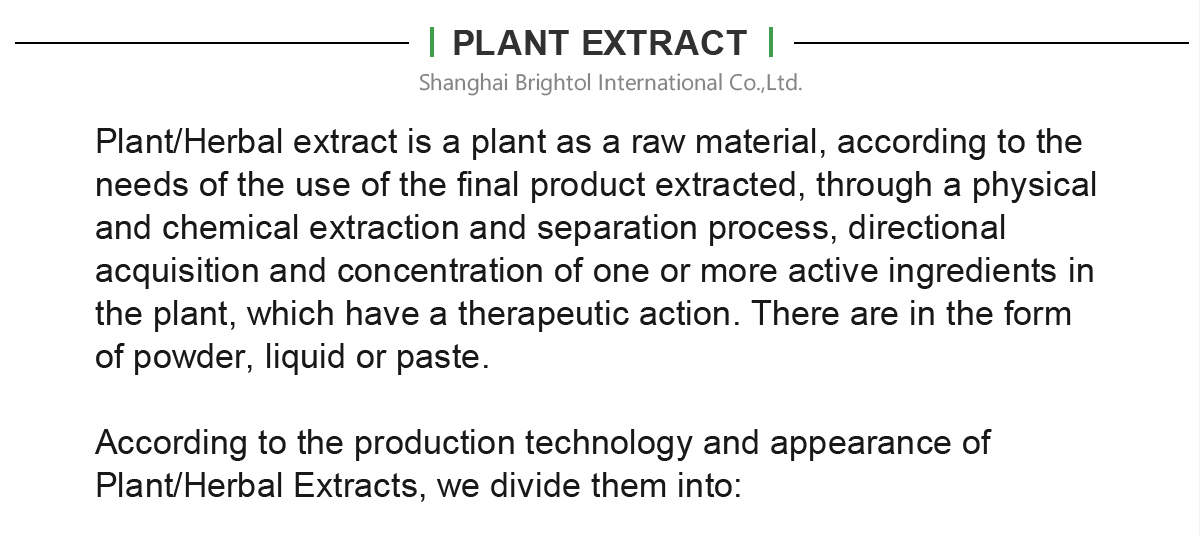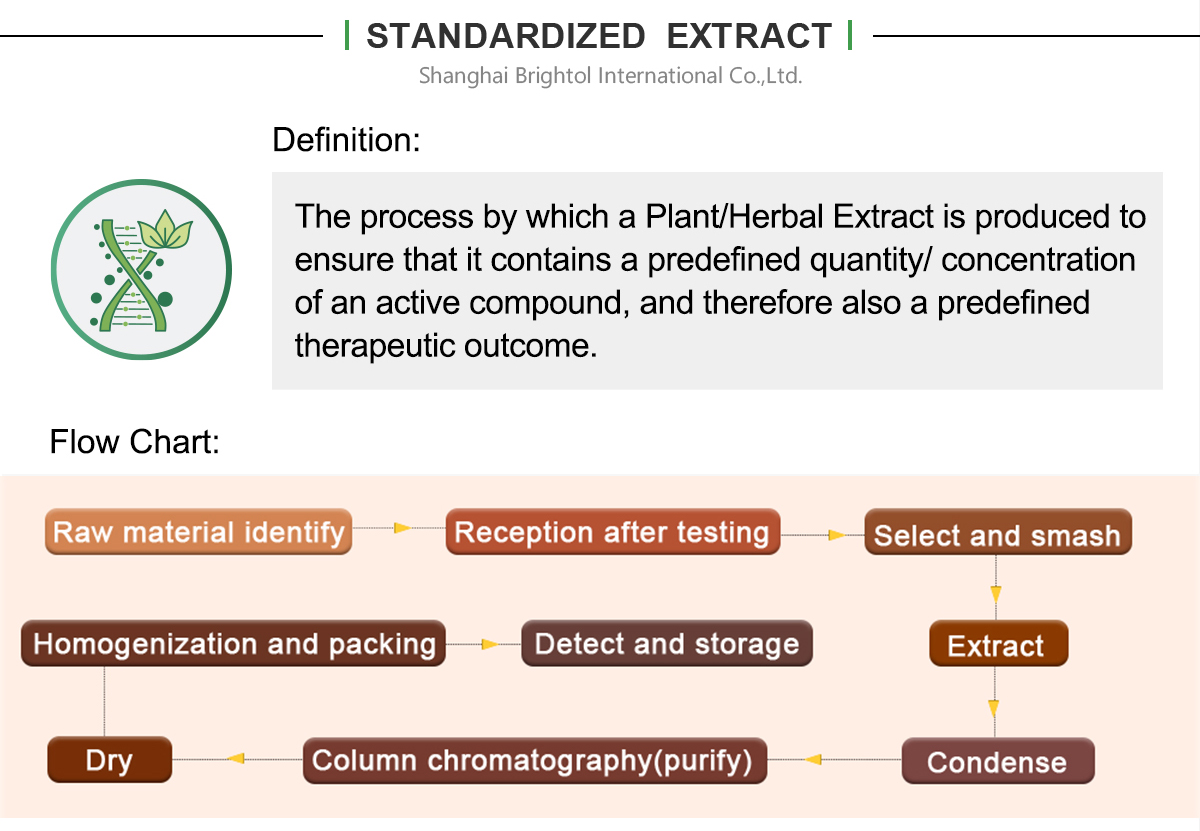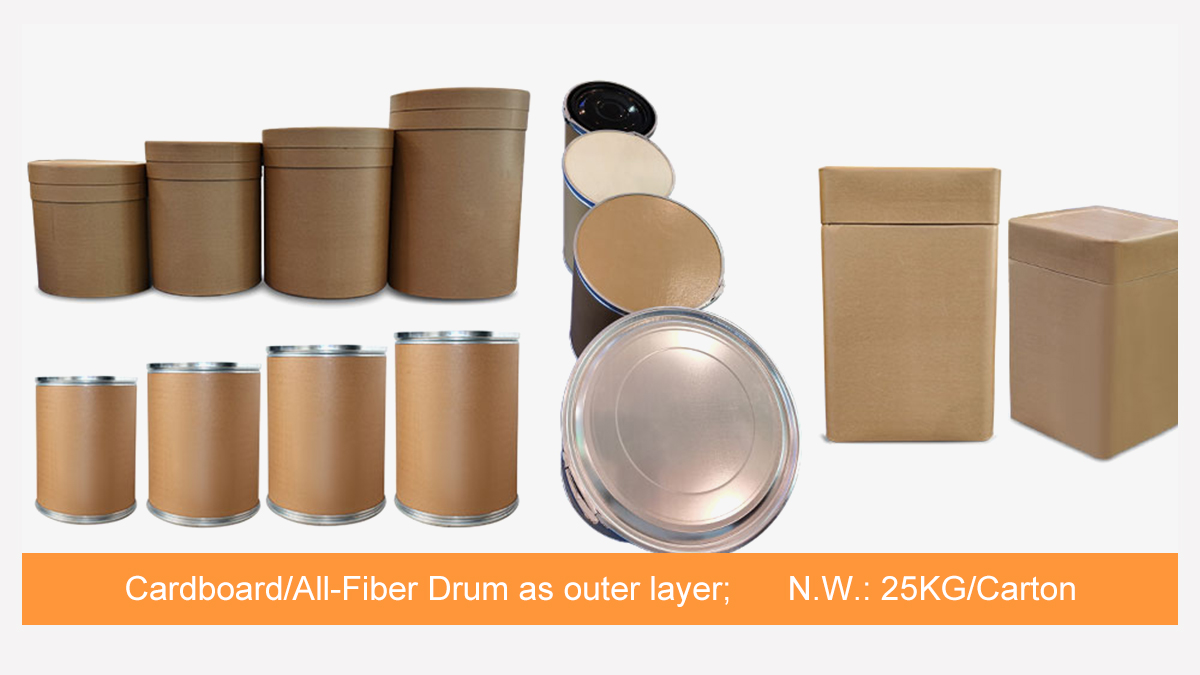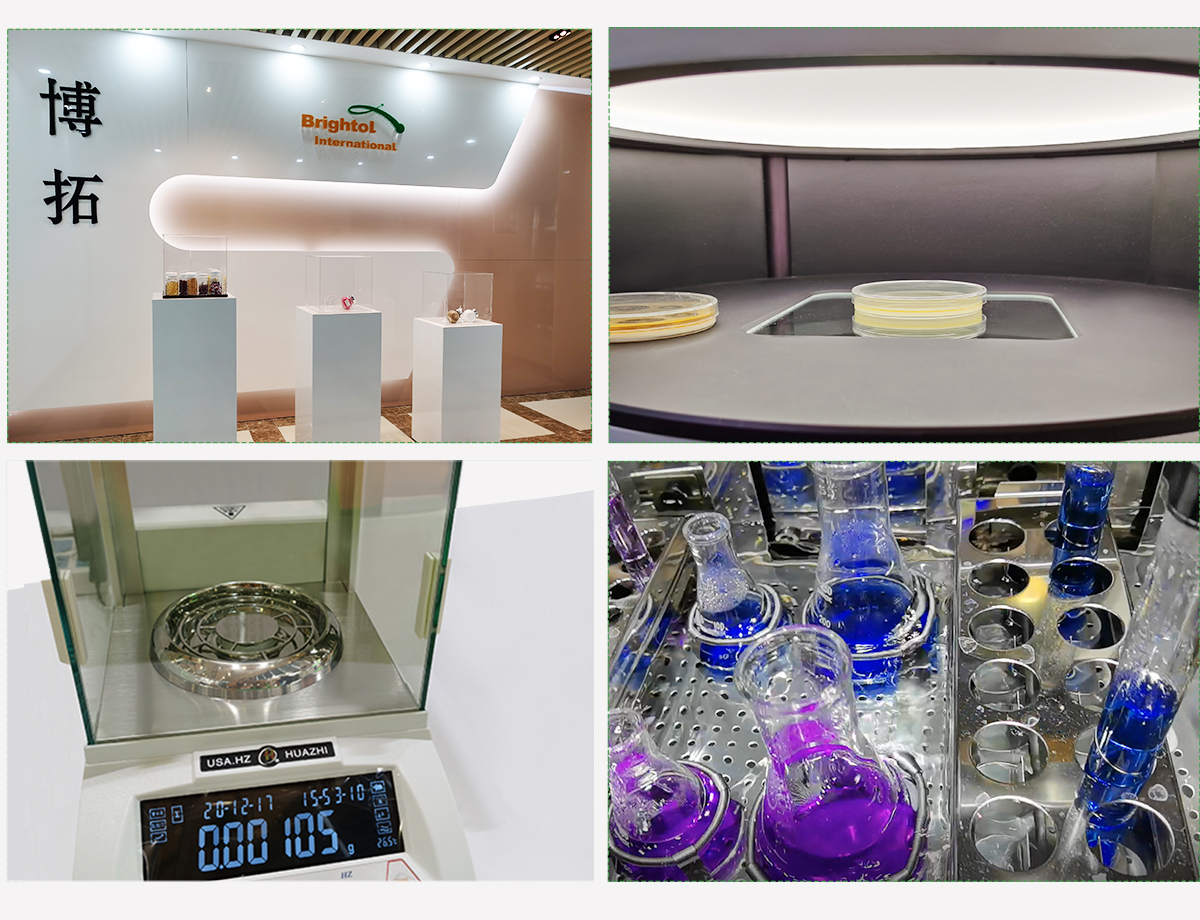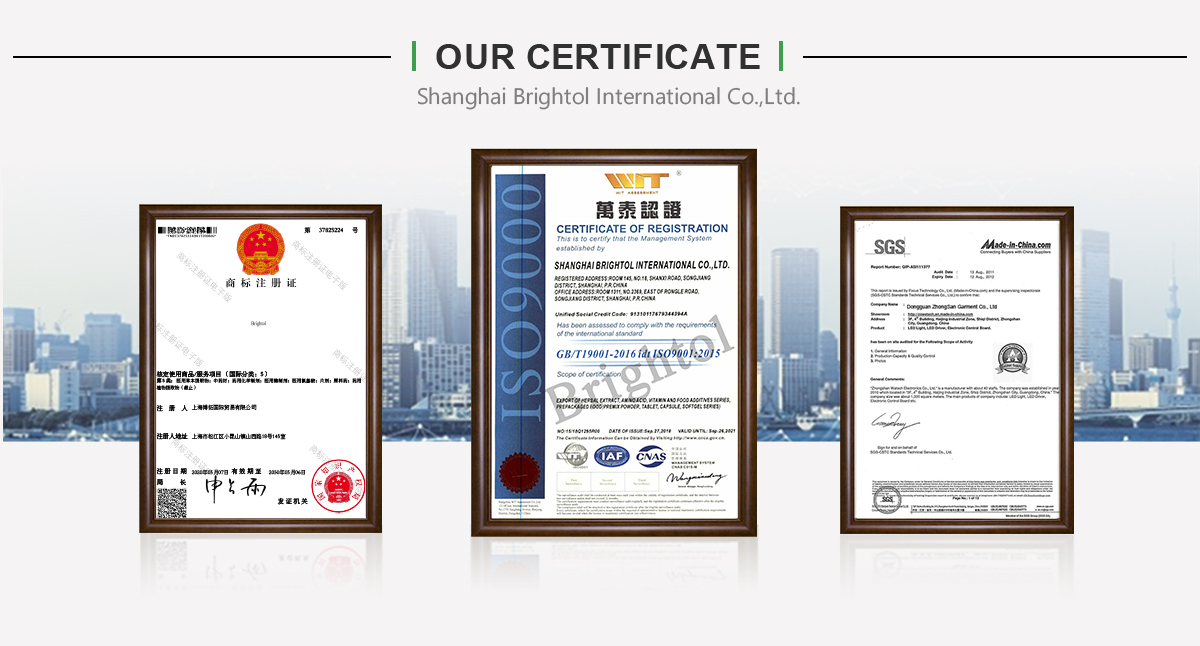

Product Name: Turkey Tail Mushroom Extract
Spec: 30% 50% Polysaccharides
Latin Name: Coriolus versicolor
Description
The turkey tail mushroom comes from the Trametes versicolor family, formerly Coriolus versicolor (or “cloud mushroom”). It’s one of the 100 species of mushrooms that have been researched for their medicinal properties.
Turkey tail mushroom grows on dead logs in woodland environments worldwide and gets its name from the brown and tan rings that look like the tail feathers of a turkey. It’s a type of bracket fungi, which means that it forms thin, circular structures that appear leaf-like.
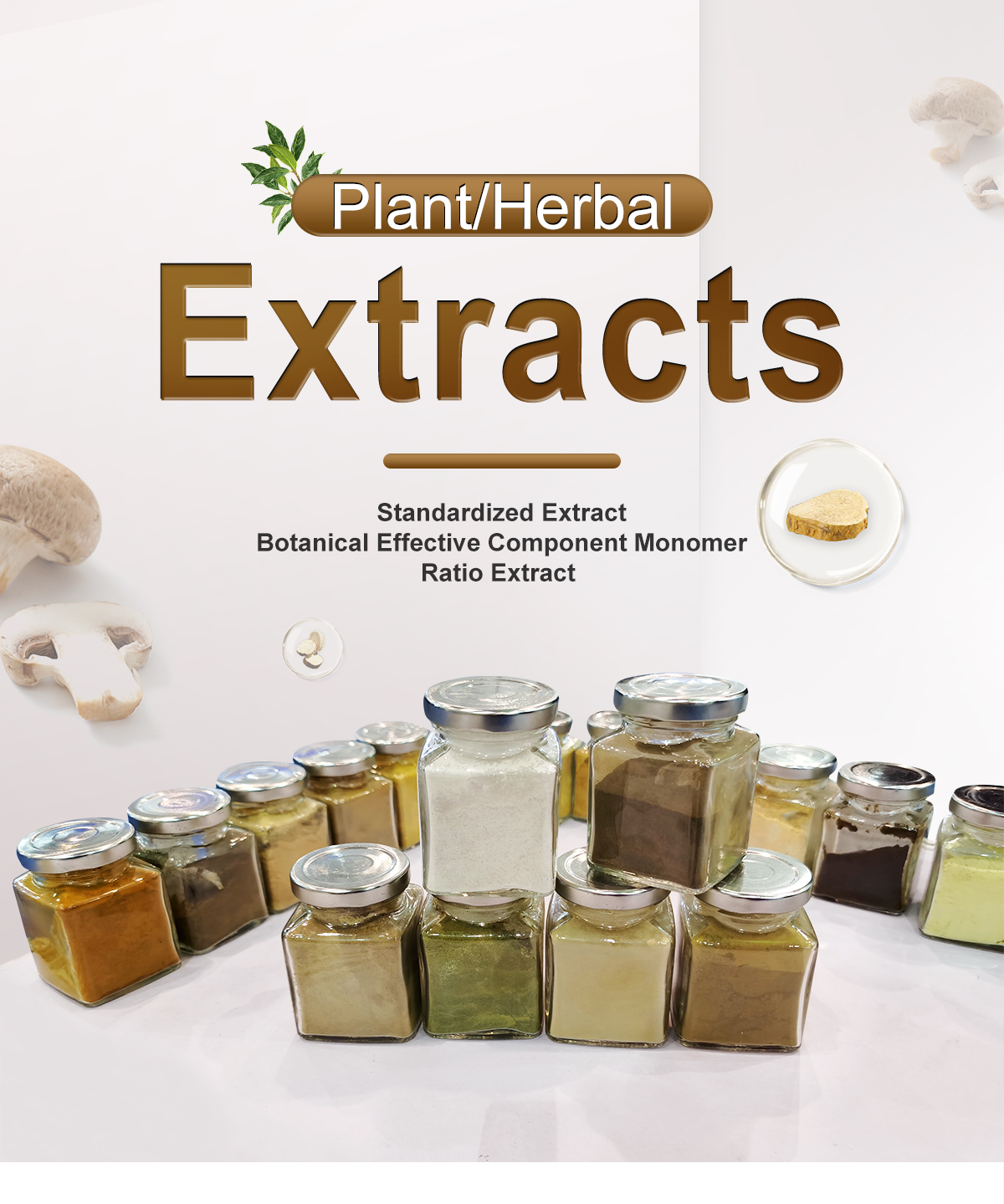

Product Name: Turkey Tail Mushroom Extract
Spec: 30% 50% Polysaccharides
Latin Name: Coriolus versicolor
Description
The turkey tail mushroom comes from the Trametes versicolor family, formerly Coriolus versicolor (or “cloud mushroom”). It’s one of the 100 species of mushrooms that have been researched for their medicinal properties.
Turkey tail mushroom grows on dead logs in woodland environments worldwide and gets its name from the brown and tan rings that look like the tail feathers of a turkey. It’s a type of bracket fungi, which means that it forms thin, circular structures that appear leaf-like.
To find one, you probably just need to look around the ground when in a wooded area. While they have an array of fall colors like a span of turkey feathers, one of the most vivid colors is typically bright green and is actually algae.
Turkey tail benefits include stimulating immune function and reducing inflammation. It has a long history of use in Asia among practitioners of traditional Chinese medicine, who used formulations of turkey tail to promote general health, strength and longevity.
Health Benefits
1. Prevents and Treats the Common Cold and Flu
The turkey tail mushroom has long been known to stave off any infection, including those associated with the common cold or flu. It helps your immune system become more resilient against ill-causing germs. When flu season approaches, you may want to include turkey tail as a supplement in your dietary routine.
The turkey tail mushroom has been shown to modulate the immune system, helping fight infections, illness and diseases.
2. Can Offer Support to Chemo Patients
Benefits of turkey tail mushrooms may include helping cancer patients who are going through chemotherapy. The U.S. Food and Drug Administration (FDA) has conducted clinical trials for a turkey tail extract to be consumed by patients who have advanced prostate cancer and are enduring conventional chemotherapy as well as testing how well it helps women with breast cancer in combination with a vaccine treatment in hopes of a new and better form of cancer therapy.
Ultimately, since chemotherapy suppresses the immune system, the hope is that turkey tail mushroom builds the immune system up to better handle the weakness that chemo often causes. A stronger immune system can help combat deadly cancer cells, making the turkey tail mushroom a potentially potent cancer-fighting food.
3. May Help Combat Cancer
For more than 30 years, medicinal mushrooms have been used as adjuncts to standard cancer treatments in Japan and China. They are used for various types of cancer, including lung cancer, breast cancer, gastric cancer and colorectal cancer. More research is needed to understand the true benefits of turkey tail mushroom for cancer, but there is evidence that it may help significantly improve survival, according to a review done by the National Cancer Institute.
PSK, the best known active compound found in turkey tail mushroom, has been studied in patients with several types of cancer, and it has been safely used for cancer in Japan with few reported side effects. Studies show that PSK helps repair immune cell damage that’s caused by chemotherapy and strengthen the immune system.
When six randomized clinical trials in patients with lung cancer were conducted, researchers found that patients receiving PSK improved in one or more ways, including body weight, well-being, immune function, tumor-related symptoms and longer survival.
A study published in Global Advances in Health and Medicine revealed that an 83-year-old woman who was diagnosed with advanced, metastatic inflammatory breast cancer led a disease-free life after using turkey tail mushroom. Though she continued chemotherapy use, she consumed capsules of turkey tail mushroom at the same time.
Scientists believe that the immune response of the turkey tail mushrooms boosted the woman’s immune system by recognizing the tumor, which increased the effectiveness of the chemotherapy. This is consistent with research that claims medicinal disease-fighting mushrooms like turkey tail, as well as maitake, reishi and Agaricus blazei, can be natural immune-enhancing and anticancer treatments.
4. Helps Treat Human Papilloma Virus
Mushrooms, in particular the turkey tail mushroom, may help heal infections, such as an oral strain of the human papillomavirus (HPV). According to a study of 61 patients with gum disease testing positive for oral HPV, 88 percent of the 41 patients who received both turkey tail and reishi mushrooms showed positive results after only two months of treatment. HPV in the mouth can sometimes lead to oropharyngeal cancer of the mouth.
5. Aids in Digestion
The mycelium in the mushroom is what may help you have a smoother digestion process when supplementing with turkey tail mushroom. The mushroom contains perfect prebiotics that assist the microbiome. This means that it can help the growth of the good bacteria in the body, including acidophilus and bifidobacterium, which is even more beneficial for anyone suffering from leaky gut syndrome. This better digestion could even help you lose weight.
6. May Help Patients with HIV/AIDS
Studies reveal that the use of turkey tail mushroom, in conjunction with other wild medicinal East African mushrooms, may be useful in treating patients with Kaposi’s sarcoma, a skin cancer often affecting those with HIV/AIDS. The same product has also benefited patients with HIV/AIDS even without the sarcoma.
Turkey tail has antibacterial and antioxidant properties; therefore, an extract of the turkey tail mushroom may be helpful. This extract, called PSP, has been studied in vitro, noting it as an antiviral agent that may prevent the replication of the HIV virus.
